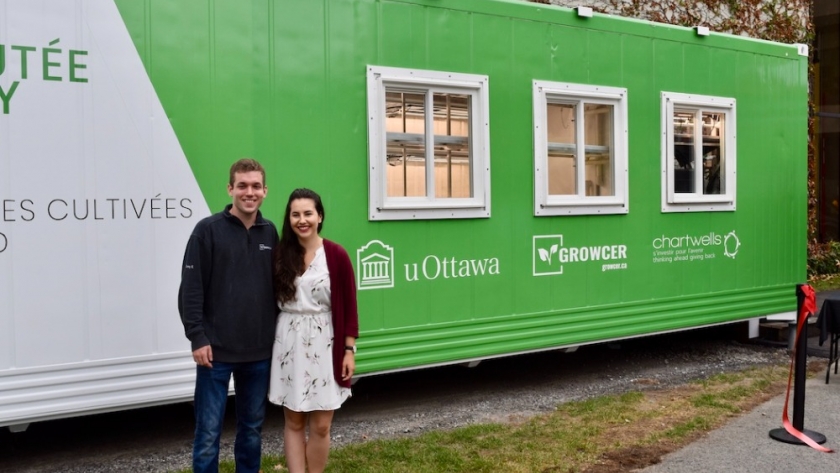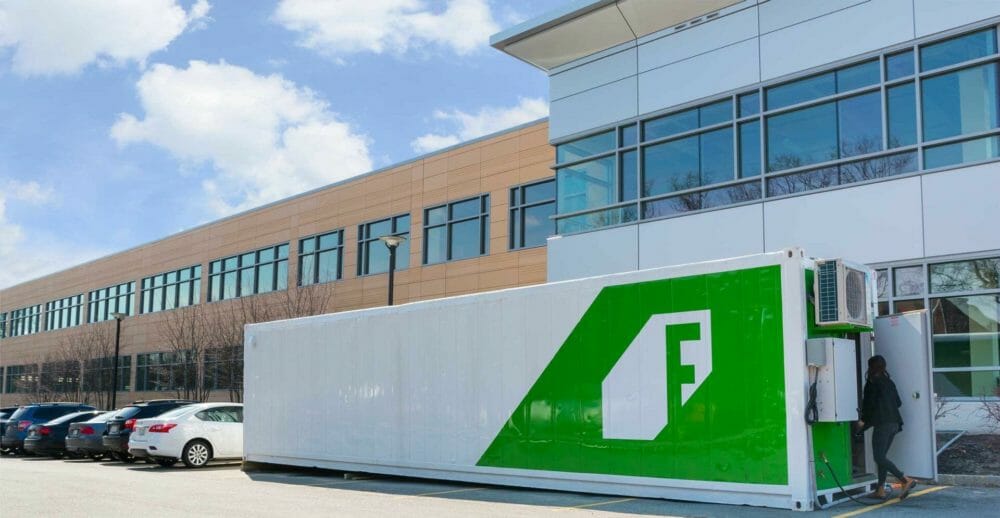
By Agroempresario.com
Last week, Canadian vertical farming company Growcer announced its acquisition of the assets of U.S.-based Freight Farms, a key player in container-based vertical farming that ceased operations in April 2025. This strategic move aims to provide continuity and support to Freight Farms’ customers, while accelerating Growcer’s growth in the North American market and beyond.
Freight Farms, which offered modular vertical farms inside shipping containers, ended its operations on April 30 after financial difficulties including layoffs and a failed merger. This shutdown left many customers without access to critical support, software updates, and replacement parts.
Growcer’s cofounder and CEO Corey Ellis immediately recognized the opportunity to step in. “These people have made really large investments into controlled environment agriculture, and they were looking for someone to carry the torch, to offer support, software, parts, and all the things that they need to continue their operations,” Ellis told AgFunderNews.
“Our goal is to provide a seamless transition for all these customers,” he added.

Growcer, headquartered in Ottawa, Canada, builds modular vertical farms using shipping containers and currently operates around 125 farms primarily across Canada, with a growing presence in the United States.
The acquisition is valued at approximately $2.6 million and includes Freight Farms’ intellectual property, customer lists, and physical inventory. The deal is expected to close by the end of the month.
“A lot of these customers have one farm and they’re thinking of adding a second or third or fourth,” Ellis explained. “We saw this as an opportunity for our business to grow and expand our footprint in the US and globally.”
Freight Farms operated in all 50 US states and in several countries worldwide, which makes this acquisition a significant step for Growcer’s international expansion.
Growcer’s story begins in the Arctic, where founders Corey Ellis and Alida Burke (also CFO) saw firsthand the challenges of food supply in remote areas.
“Food can’t be shipped in because there are no roads,” Ellis explains. “Everything is flown in, which makes it very expensive, poor quality, and nutritionally lacking.”
Inspired by leftover shipping containers scattered across the region, they converted one into a year-round greenhouse growing greens at temperatures as low as minus 50 degrees Celsius.
“Once you cut your teeth doing that, everything else seems easier in comparison,” Ellis reflects.
Growcer, now a decade old, has been mostly bootstrapped and only raised a small Series A round last year, led by building services provider Modern Niagara and cleantech investors Jeff Westeinde and Jeff York.
Ellis stresses that vertical farming is “not a silver-bullet solution” for agriculture. Many high-profile companies in the sector, such as Aerofarms, Bowery, InFarm, and Plenty, have burned through hundreds of millions of dollars in investment only to declare bankruptcy or shut down operations.
He says Growcer takes a more pragmatic approach: “This farm doesn’t make money in every climate and market in the world. It works in specific places where the market economics, power prices, and labor costs align.”
“That magic combination doesn’t sound good to a VC looking for the largest possible market,” Ellis adds.

A key part of Growcer’s acquisition plan is to bring back former Freight Farms team members and provide ongoing, “enduring” support to growers.
Beyond container farms, Growcer offers modular food hubs including prefab food processing spaces that connect multiple container farms, walk-in fridges, freezers, and root cellars. These additions help growers not only produce but also store, preserve, and process their harvests.
Ellis notes that Growcer will introduce “cost recovery” policies for customer support, as Freight Farms had previously offered many services for free, which was unsustainable.
“Freelance consultants who assessed Freight Farms’ bankruptcy had put a price on support,” Ellis said. “Our support costs will be in line with similar market offerings.”
Ultimately, the company’s focus is on building a sustainable business that supports growers both now and 20 years from now.
“We’re building this business for customers,” Ellis emphasizes. “That’s our core belief and how we differ.”
